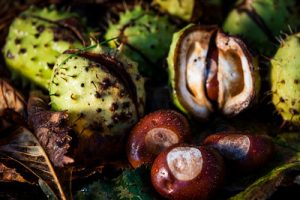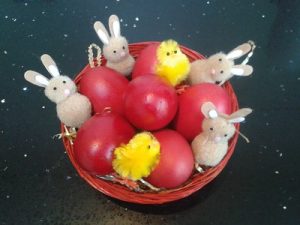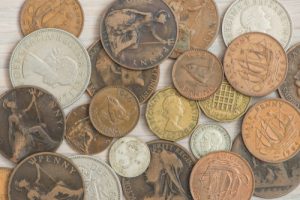
Britain’s many traditions and customs reflect the country’s rich cultural history. These celebrations are almost all tied to the agricultural calendar, local folklore, religious festivals, historical events, or communal identity. However, the relatively recent past has seen Britain undergo major technological advances, rapid urbanisation and mass immigration. These developments have fuelled a tremendous shift in Britain’s social norms. As a result, once well-supported customs and traditions are increasingly being forgotten.
Here’s a brief account of the traditional children’s game of conkers:
What’s a Conker?
For anyone in the dark, the word ‘conker’ refers to the seed of the horse chestnut tree. The glossy brown nut grows inside a spiky green pod. The pods generally fall from the tree after they fully ripen during Autumn.

Photo credit: Flickr/CC BY-NC 2.0
The Game of ‘Conkers’
During Autumn, you could once expect to find ‘conkers’ being played in playgrounds across the length and breadth of Britain. To play, you first need to pierce a hole through the centre of a conker. It is then threaded onto a piece of string or a shoelace. The two players then take turns swinging their conker in order to strike their opponent’s conker. The player whose conker survives the dual without breaking is declared the winner. Players would often attempt to toughen their conkers by various techniques. Popular hardening methods included soaking the conkers in vinegar or baking them in an oven.
A History of Conkers
The horse chestnut tree, native to the Balkans, was introduced to Britain during the late 17th century. The game of conkers is believed to have originated in Britain. The Romantic poet, Robert Southey, references a conkers-type game in his memoirs, published in 1821. However, the game he described was played with snail shells or hazelnuts rather than chestnuts. The first ever recorded game of conkers took place in 1848 on the Isle of Wight. However, many people believe the game to be much older. The first-ever National Conker Championship was held in Southwick, Hampshire in 1960.
The origin of the word ‘conker’ itself is also uncertain. It is a widely held belief that it was derived from the French word ‘cogner’, meaning to hit. Others think it is related to the French word ‘conque’, which translates to English as conch. Another belief is that the word ‘conker’ is derived from ‘conquerors’, the name of the early similar game involving shells and hazelnuts. Across Britain, conkers was also known by several regional names, including cheggars, cheggies, cobblers, obblyonkers and cheesers.
Conkers Today
The game of ‘conkers’ is nowhere near as popular in Britain as it once was. Many people blame the country’s increasingly extreme ‘Health and Safety’ regulations for the games’ downfall in schools. And of course, the relentless rise and availability of internet games and entertainment. Nonetheless, the World Conker Championships (WCC) are still held annually in Northamptonshire on the second Sunday of October. The game also has a strong international following, where alternative world conker tournaments are held.
Header photo credit: CC BY 3.0





